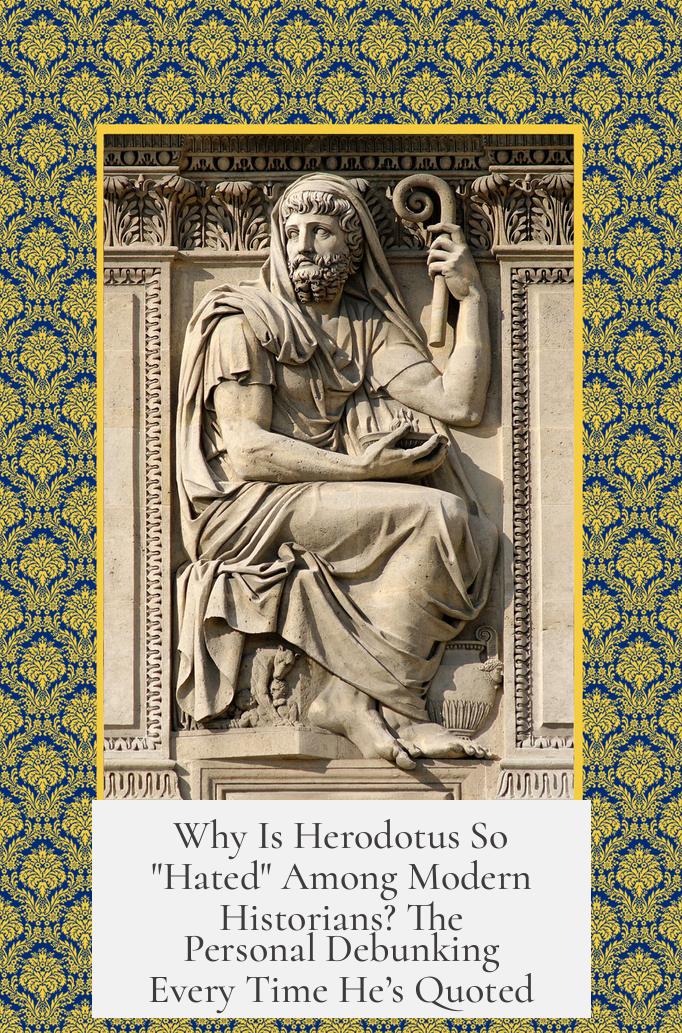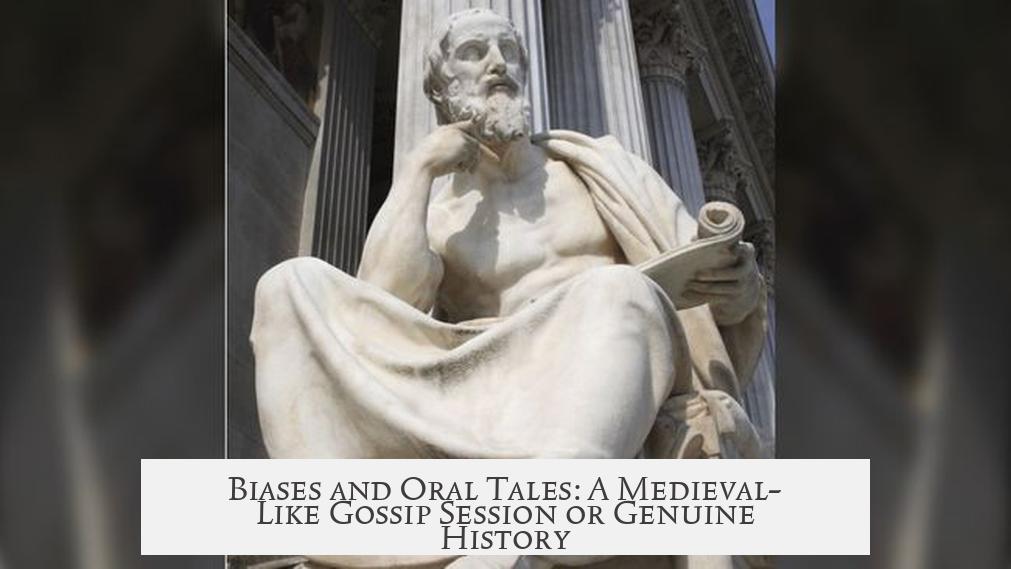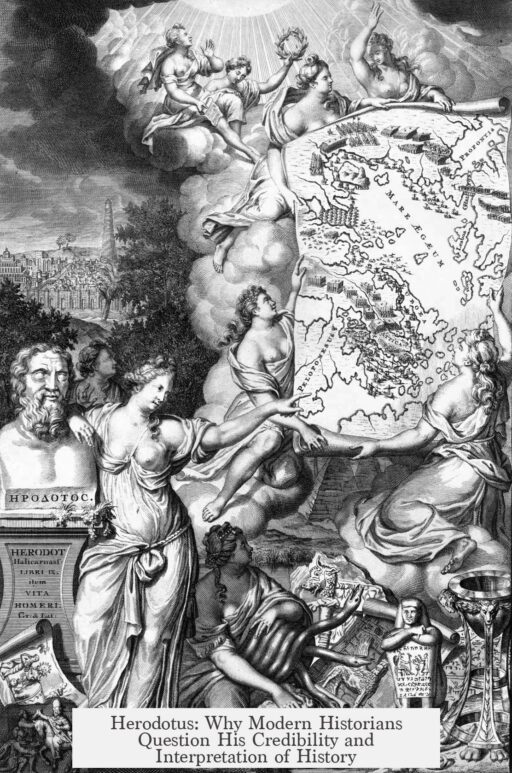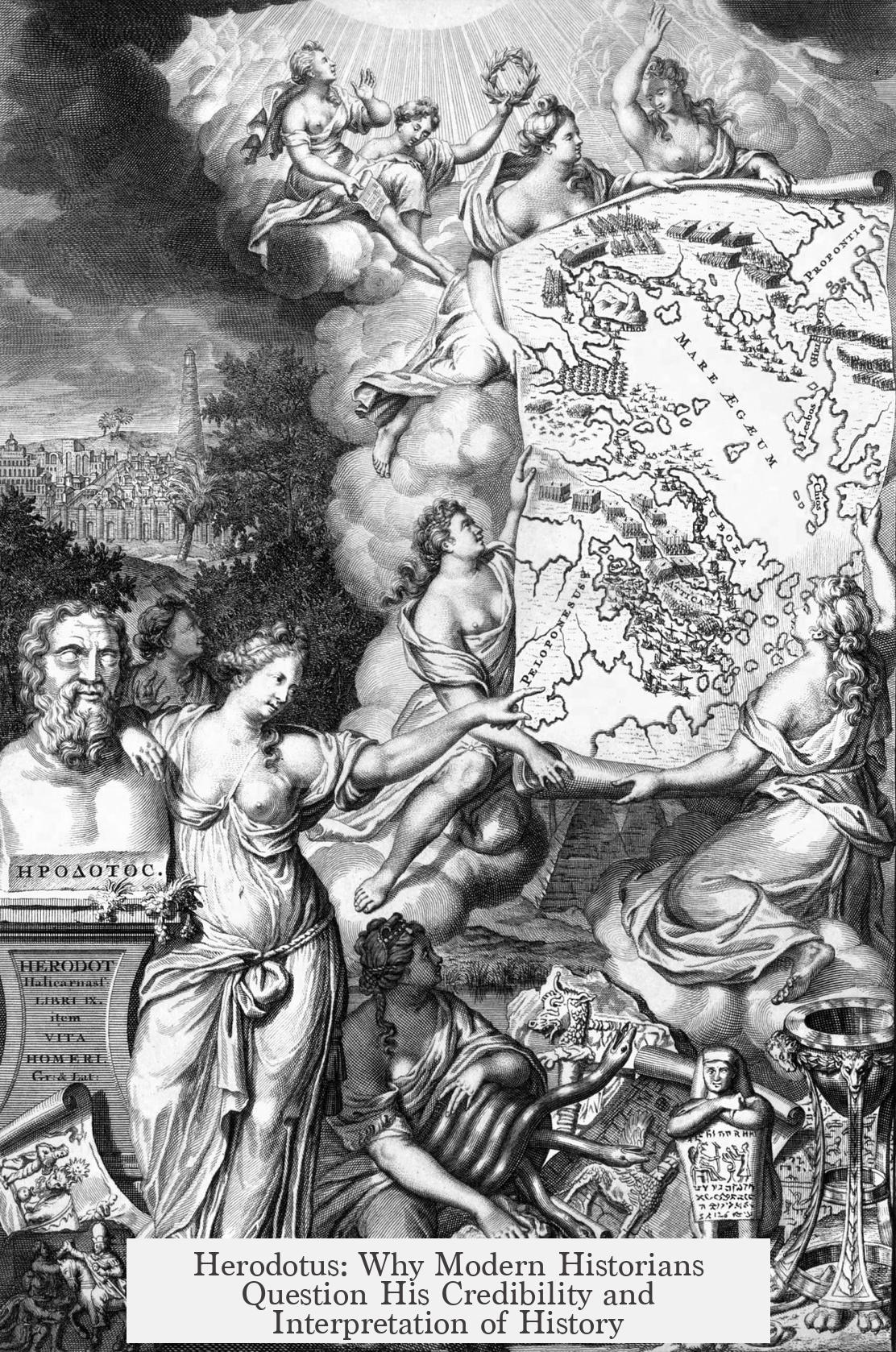Herodotus is often “hated” or critically treated by modern historians because his work requires constant scrutiny and debunking due to inherent issues with his sources, method, and reliability. Historians do not reject Herodotus out of personal animosity. Instead, they address his writings with suspicion because of the challenges in verifying his vast and varied accounts.
Modern historians understand that all ancient sources need critical evaluation. Whether examining Thucydides, Aristophanes, or Herodotus, none offer perfect accuracy. Each is influenced by personal biases, their sources’ perspectives, agendas, and occasionally hearsay. However, Herodotus’ case is special because he records information from a wide geographic area—from Greece to distant lands like Scythia and India—that no other contemporary source covers. This breadth demands extra caution.
Herodotus often fails to provide precise attributions. While he lists sources to an extent, many are vague or anecdotal. For example, he may simply cite a conversation over wine or a secondhand oral tale. He sometimes includes inscriptions but never clarifies who translated or interpreted them, raising questions about accuracy.
- Some stories in his work appear dubious or fabricated. A well-known example is the claim that Pharaoh Kheops prostituted his daughter to fund pyramid construction (Histories 2.126). Scholars debate whether this tradition derives from genuine ancient lore or was a later joke or misinterpretation.
- His accounts often reflect biases inherent in his informants. One study argues that Herodotus’ depiction of Persian kingship echoes the views of Persians and Medes in Asia Minor responding to post-Greco-Persian War political debates, suggesting a regional slant rather than objective reporting.
- Oral traditions form a large component of his narrative, but verifying these is difficult. Stories like Polycrates’ ring (Histories 3.40-42) resemble folklore and raise questions about how much is factual history versus repeated legend.
- His knowledge of distant peoples, such as the Scythians and mythic creatures guarding gold, likely derives from hearsay or myth rather than firsthand observation, since Herodotus rarely traveled beyond Greek colonies near the Black Sea.
This combination of unverifiable oral sources, vague citations, regional biases, and inclusion of mythical or folkloric content leads modern historians to treat Herodotus with skepticism. Whenever they use his work, they feel compelled to “debunk” or carefully qualify his accounts. This approach is necessary to prevent spreading inaccuracies hidden within his otherwise invaluable historical record.
The frequent critical stance is not a personal attack but a methodological necessity. Herodotus occupies a unique position as “the father of history,” yet his records blend fact and legend in ways that require historians to distinguish carefully between them. Scholars aim to extract reliable details without accepting everything at face value.
| Reasons Modern Historians Critically Assess Herodotus |
|---|
|
Thus, scholars continuously engage in “debunking” to justify the use of Herodotus as a source and to avoid propagating errors. This caution ensures modern interpretations of ancient history remain as accurate as possible while still benefiting from his extensive writings.
- Herodotus’ expansive but often imprecise sourcing challenges historical reliability.
- His mix of oral tradition and hearsay requires careful skepticism.
- Modern historians assess his accounts critically to avoid repeating myths or biases.
- “Debunking” is a scholarly precaution, not personal disdain.
- His work remains an essential yet complex source for ancient history.
Why Is Herodotus So “Hated” Among Modern Historians? The Personal Debunking Every Time He’s Quoted

The short and honest answer: Herodotus earns suspicion because his work mixes fact with folklore, hearsay, and fits neatly into a tradition that modern historians always feel they must unpack and critique before using him as a source. That’s not to say he’s bad—far from it. But historians treat him like a friend who’s told a few tall tales at the party, and they feel compelled to set the record straight before handing around his stories.
Let’s explore why Herodotus is the subject of such personal “debunking” in scholarly circles. It’s a classic case of love meeting skepticism, peppered with the complexities of ancient storytelling and source reliability.
The Necessity of Source Criticism: Every Historian’s Headache
First, a quick reality check: every ancient source, including Herodotus, invites criticism. No historian expects 100% accuracy from sources such as Thucydides or even Aristophanes, with their own agendas and theatrical flare. Each source has “bias baked in,” whether personal, political, or due to unreliable hearsay.
Historians must evaluate the trustworthiness of every piece of information, asking, “How credible is this?” This is why nothing is accepted blindly. Just like in the famous trial of Phryne, where centuries-later stories immortalized Hyperides’ dramatic undressing of Phryne. The event might be true, or it might be a later addition to spice up the story. This caution applies heavily to Herodotus.
Take a look at Sparta for example. Old school historians cobbled together an understanding of classical Sparta using sources spanning nearly 1,000 years—from Tyrtaeus to Pausanias. Modern scholars now dismiss that patchwork approach and instead judge sources individually, assessing their reliability on a case-by-case basis.
Herodotus’ Unique Position: The ‘Father of History’ With an Oral Tradition Twist
Herodotus occupies a unique spot in history. His writings cover an enormous area—from Greece to Scythia and even distant India—details not preserved elsewhere. This breadth comes with a price: his sources range widely, but often lack precise attribution.
Herodotus sometimes derives his stories from overheard conversations in a kapeleion (a local tavern), occasionally from inscriptions, and sometimes oral tradition. But who translated those inscriptions? How well understood were they? These questions make historians wary.
For instance, consider this bizarre tale: Herodotus claims King Kheops prostituted his own daughter to fund the pyramids. Now, Kheops lived roughly 2,000 years before Herodotus. Was this story a twisted joke, or a genuine tradition? Modern historians are still scratching their heads.
Biases and Oral Tales: A Medieval-Like Gossip Session or Genuine History?

Herodotus’ sources themselves were often biased. His accounts of Persian kingship, for example, stemmed from talks with Persians and Medes in Asia Minor after the Greco-Persian Wars. It was a hot, politically charged topic, not pure history.
Then there are the oral traditions. Stories about Polycrates and Croesus of Lydia sound like campfire tales, complete with cautionary twists. Take the tale of Polycrates’ ring—classic folktale material, where a seemingly lucky item brings bad luck. How do historians verify such stories? They can’t, really—they treat them as cultural lenses rather than historical facts.
Faraway Worlds and Mythical Creatures: How Did He Know?
Herodotus reportedly journeyed to Greek colonies along the Black Sea but never ventured deep inland. Yet his histories brim with accounts of Scythians, griffin-guarded gold, and the one-eyed Arimaspi. From where did he get these exotic details? Travelers’ tales? Translations? Imaginative guesswork?
This sense of wonder plus unclear sourcing makes historians raise their eyebrows. They appreciate Herodotus’ work as a priceless mosaic—sometimes colorful, sometimes flawed, often in need of interpretation.
So Should We Stop Using Herodotus?
Absolutely not! Despite all the fuss, Herodotus remains an indispensable treasure chest of knowledge about the ancient world. The key is understanding what he offers: a vivid blend of fact, folklore, and cultural insight from the ancient Mediterranean.
Modern historians don’t “hate” Herodotus per se. They simply insist on doing their homework each time they cite him. They want to peel away myths and biases without tossing out every fragment of truth.
In Conclusion: Love Him, Question Him, Use Him Wisely
Herodotus is both beloved and suspect. His “hatred” among modern scholars has roots in a rigorous approach to evaluating sources, peeling back layers of oral tradition and cross-cultural gossip. They constantly debate “which bits are history, which are legend,” because frankly, Herodotus loves a good story.
So next time you hear a historian say they “had to debunk Herodotus,” remember: they’re not ignoring him. They’re engaging in a centuries-old detective work, trying to figure out how much truth is in that amazing patchwork quilt of tales. It’s a personal, scholarly dance—like teasing the truth from a storyteller who might have had a few too many cups of ancient wine.
Herodotus invites us to enjoy both history and story. The trick is knowing when to listen with a historian’s skeptical ear, and when to simply sit back and enjoy the show.
Why do modern historians often feel the need to “debunk” Herodotus personally?
Herodotus’ work contains many stories from oral traditions and uncertain sources. Historians question the accuracy of these tales. They want to clarify when they use his accounts because his sources can be biased or unreliable.
How does Herodotus’ lack of specific source citation affect historians’ trust in him?
He often names sources vaguely. Sometimes he cites hearsay or conversations without clear evidence. This makes it hard to verify his information, so historians approach his claims with caution.
Are the myths and exotic stories in Herodotus’ work a main reason for skepticism?
Yes. Stories like gold-guarding griffins or one-eyed Arimaspi are likely based on myth or exaggerated tales. Such content raises doubts about how much of his history is factual versus folklore.
Was Herodotus aware of biases in his sources, and does that influence modern criticism?
Herodotus relied on informants who had their own perspectives, such as Persians after the Greco-Persian wars. These biases affect his narratives, leading scholars to question the neutrality of his accounts.
Why is source criticism especially important when using Herodotus compared to other ancient historians?
He covers wide regions with little other contemporary evidence. Because much of his information is unique, not verified elsewhere, historians must critically analyze his work to separate fact from possible fiction.




